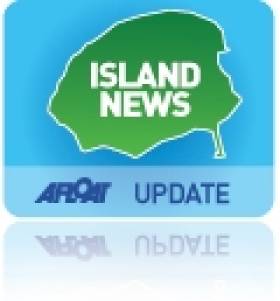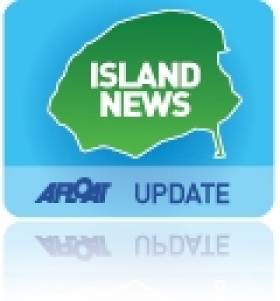Displaying items by tag: Cape Clear Ferry
New Cape Clear Ferry Will Develop Tourism in West Cork
Having sold two of its vessels - the fast Ferry Dún na Séad II and the Dún Aengus, Cape Clear Ferries in West Cork is buying the Spirit of Doolin from O’Brien’s Ferry Company in Clare. This will replace the previous fast ferry, while the Dún Aengus is being replaced by another purchase, the Carraig Mhór.
Manager Séamus Ó Drisceoil says the company is upgrading its fleet and “working with Comharchumann Chléire Teo and other service providers to develop an outstanding maritime tourism experience based around the Fastnet Rock and Cape Clear Island. This will bring new business to the Island and its mainland hinterland.”
Spirit of Doolin is a modern stylish vessel with a 200-passenger capacity. It will operate mostly from Schull to Cape Clear and around the Fastnet Rock Lighthouse.”
The vessel called to Baltimore and Cape to be shown to the island and the local community. The purchase is subject to approval trials.
Sail-Pass of Island Beacon in Memory of Titanic
#ISLAND NEWS – A beacon is due to be lit early this afternoon (2 – 3pm) on Cape Clear Island, marking the 100th anniversary today of the RMS Titanic's departure from Cobh (Queenstown) where the doomed liner continued on her maiden voyage into the Atlantic.
The beacon at Fiona's Land is accessible by a walking trail and is where the Naval Service L.E. Aisling (P23) is to recreating the liner's voyage by passing off the southern side of the Co. Cork island.
For information on island life, activities and events, follow the Cape Clear Ferry blog HERE.
New 2012 Timetable for Cape Clear Ferry
#ISLANDS -The Cape Clear Ferry which operates the service between the Wst Cork island and Baltimore, has outlined revisions to sailing schedules for this year. The proposed changes follow a consultation process held with the islanders, as previously reported on Afloat.ie
The changes to sailings during the months of May, June and September and also to schedules between 1st April-30th December are available to view by clicking HERE.
In addition a table showing the minimum frequency of daily return sailings are also outlined.

























































